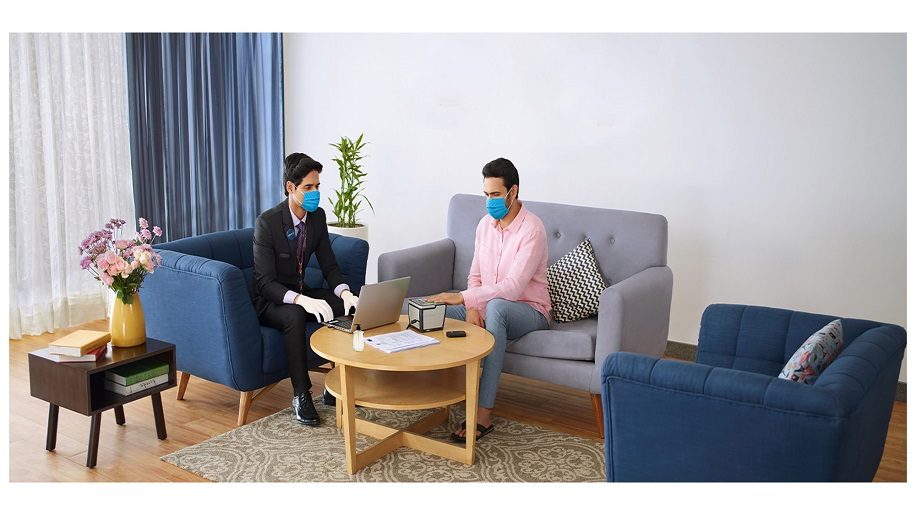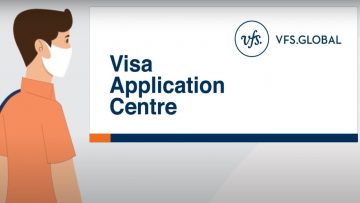
Opinion by Vinay Malhotra, Regional Group chief operating officer, south Asia, middle east and north Africa, and Americas, VFS Global
Travel has always been a significant part of the socio-economic fabric across the world. Whether it’s for business or vacations, it has gradually become a necessity for most of us. Since much of travel, as we know it, came to a halt earlier this year, the industry has been biding its time, using this pause to reinvent the way people travel in the post-Covid future.
While the long-lasting lockdowns and travel restrictions have pushed travel to the top of almost everyone’s wish-lists, there are new-found apprehensions around health and safety that have emerged and quite possibly are here to stay.
Global Web Index recently quoted that 87 per cent of consumers in the Asia/Pacific region expect to make changes to the way they travel. Given the current environment, travel enablers will first need to regain confidence in the safety of the entire travel ecosystem – right from planning to visa applications, the airport-airplane journey and the country they are visiting.
A part of this can be tackled with higher standards of sanitisation, accessible healthcare and social distancing. However, most other travel processes will have to graduate by leaps and bounds into digitalisation to appease consumer demands.
This will undoubtedly have to start from the very first step of travel which is visa application. Travellers will now opt for personalised tools and services that allow them to apply for their visas more conveniently, efficiently, and from a place, they feel safe in.
Here is how the visa journey could evolve:
The rise of personalised services
It is imperative for travel companies to understand that while making travel safer is one of the most significant tasks at hand right now, making travel even better is the larger goal. To this end, the rise of personalised services will be a great start for the industry to ease the minds of the consumers. While visa applications have for long been an in-person process, visiting busy public spaces can be a concern for many travellers.
Biometric registration is one leg of the process that will continue to be completed in-person. To meet the needs of tomorrow’s travellers, the most logical upgrade is taking the biometric systems to the customer’s doorstep. Services like ‘visa at your doorstep’ or ‘on-demand mobile visa’ have already been employed by several countries and are seeing a significant uptake owing to the convenience of the process.
Changing the game with technology
Documentation is one of the most arduous parts of travel planning, and more so when one has to lug them around for visa applications and interviews.
Technology has enabled applicants to scan and upload their documents through their smartphones, tablets, printer-scanner or other camera-equipped computing devices, and this can be a game-changer.
The ‘self-upload’ option introduced by the government of the United Kingdom, which enables applicants to upload/submit their documents, assures no physical contact between individuals and is a great example of how technology can be leveraged to guarantee a ‘contactless’ experience.
Another trend is the greater use of automated or AI-powered systems that allow governments to remotely assess digital versions of various government-issued documents. Technology like this not only allows authorities to authenticate documents before receiving the physical copies, but also helps keep the process secure, safe, and efficient for both the individual and the authorities.
The e-visa solution simplifies and digitalises the entire lifecycle of the visa process while guaranteeing minimum to no contact between individuals. E-visa adoption has been a success in countries such as Vietnam, Suriname and Thailand where no biometric enrolment is required pre-departure.
Taking this a step further is the electronic visa on arrival (eVOA), that digitises the visa on arrival experience as well, allowing travellers to apply for their e-visas online from the comfort of their homes, and avoid long waits at the airport.
Adoption of tech-driven solutions
Digital solutions are expected to be adopted on a much larger scale now, with more customisation.
In addition to visas, Covid-19 testing has become another crucial element of travel, where pre-departure testing solutions are being explored to ease the pressure of on-arrival testing on airports or destination countries.
For those wary of stepping out to labs and medical facilities for the test, travel companies have now brought Covid-19 testing to their doorstep. VFS Global recently launched an offering where customers can book appointments for a doorstep option, which enables sample collection from the comfort of their home.
Though this service is not related to any visa application process at this stage, personalised solutions like these will be significant in advancing the recovery trajectory of the travel industry.
While most governments, travel companies and agents today have made some headway into their digitalisation journeys, this pause in travel should serve as a cue for those who haven’t.
When travel resumes business as usual, the prudent new traveller is sure to make their decisions based on how safe and convenient a brand makes their living in the new normal, and the progress made by travel companies and service providers during this period will have to be aligned with these new expectations.












